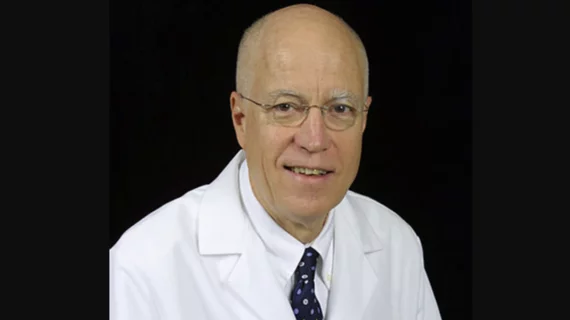‘A giant in medicine’: American Journal of Cardiology editor steps down after 40 years on the job
William C. Roberts, MD, has announced that he is stepping down as editor of the American Journal of Cardiology after 40 years on the job.
Roberts has long been one of cardiology’s leading voices, contributing to more than 1,600 academic articles and working in a variety of roles for the American College of Cardiology (ACC), American Heart Association and National Institutes of Health. He was also played a key role at Baylor University Medical Center since 1993. In addition, Roberts has recorded and published more than 100 oral histories of cardiology and written or co-written 11 books. He has received numerous awards and honors over the years, including the ACC’s Lifetime Achievement Award in 2016.
“I recently learned that my health was not quite as good as I had thought and therefore it seemed most appropriate for the superb publisher of Elsevier to select a new editor,” Roberts said in his announcement. “It has been a wonderful 40-year ride, and watching the journal grow and prosper has been gratifying and exciting.”
Roberts also reflected on the changes he has seen over the years, emphasizing that the journal was always open to his suggestions as the years went on.
“I will miss working with the manuscript-submitting authors, the dedicated reviewers, and the wonderful publishers I have interacted with through these decades,” he added.
Interventional cardiologist Subhash Banerjee, MD, a professor of medicine at the University of Texas Southwestern Medical Center, will serve as the new editor of the American Journal of Cardiology on an interim basis.
“Standing on the shoulders of a giant in medicine, Dr. William C. Roberts, the American Journal of Cardiology has earned its rightful place as one of the leading independent journals on cardiovascular disease for specialists and internists throughout the world,” Banerjee said in an editorial. “As a revered mentor, cardiovascular scientist par excellence, independent thinker, and dear friend, Bill Roberts passes the journal in our hands.”

